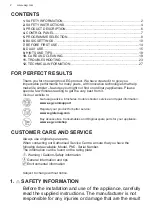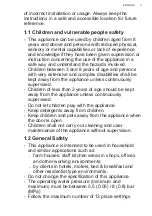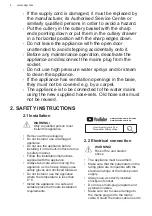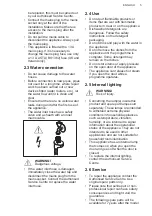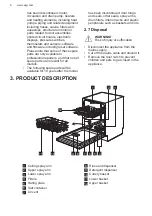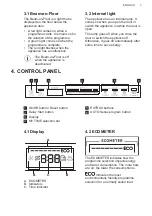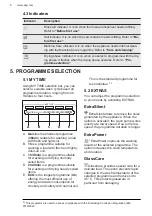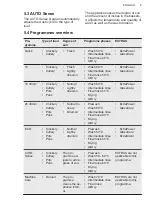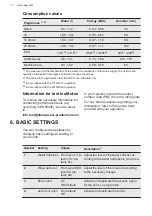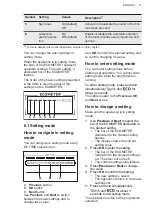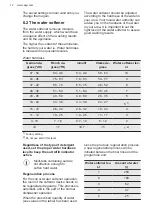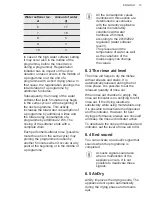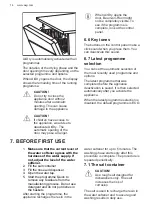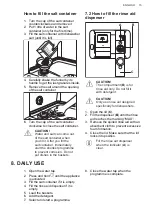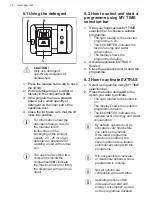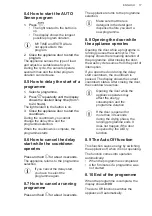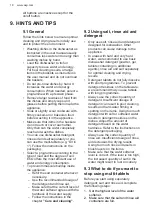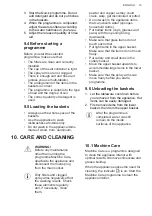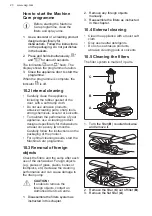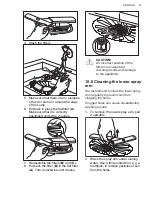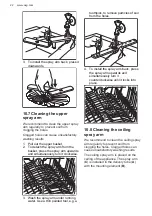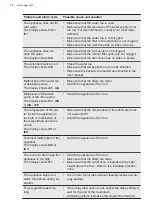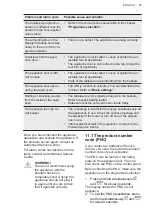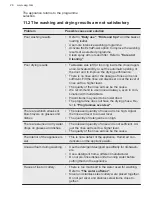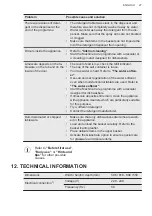
The saved settings remain valid until you
change them again.
6.2 The water softener
The water softener removes minerals
from the water supply, which would have
a negative effect on the washing results
and on the appliance.
The higher the content of these minerals,
the harder your water is. Water hardness
is measured in equivalent scales.
The water softener should be adjusted
according to the hardness of the water in
your area. Your local water authority can
advise you on the hardness of the water
in your area. It is important to set the
right level of the water softener to assure
good washing results.
Water hardness
German de‐
grees (°dH)
French de‐
grees (°fH)
mmol/l
Clarke de‐
grees
Water softener lev‐
el
47 - 50
84 - 90
8.4 - 9.0
58 - 63
10
43 - 46
76 - 83
7.6 - 8.3
53 - 57
9
37 - 42
65 - 75
6.5 - 7.5
46 - 52
8
29 - 36
51 - 64
5.1 - 6.4
36 - 45
7
23 - 28
40 - 50
4.0 - 5.0
28 - 35
6
19 - 22
33 - 39
3.3 - 3.9
23 - 27
5
1)
15 - 18
26 - 32
2.6 - 3.2
18 - 22
4
11 - 14
19 - 25
1.9 - 2.5
13 - 17
3
4 - 10
7 - 18
0.7 - 1.8
5 - 12
2
<4
<7
<0.7
< 5
1
2)
1) Factory setting.
2) Do not use salt at this level.
Regardless of the type of detergent
used, set the proper water hardness
level to keep the salt refill indicator
active.
Multi-tabs containing salt are
not effective enough to
soften hard water.
Regeneration process
For the correct water softener operation,
the resin of the softener device needs to
be regenerated regularly. This process is
automatic and is the part of the normal
dishwasher operation.
When the prescribed quantity of water
(see values in the table) has been used
since the previous regeneration process,
a new regeneration process will be
initiated between the final rinse and the
programme end.
Water softener lev‐
el
Amount of water
(l)
1
250
2
100
3
62
4
47
5
25
www.aeg.com
12


